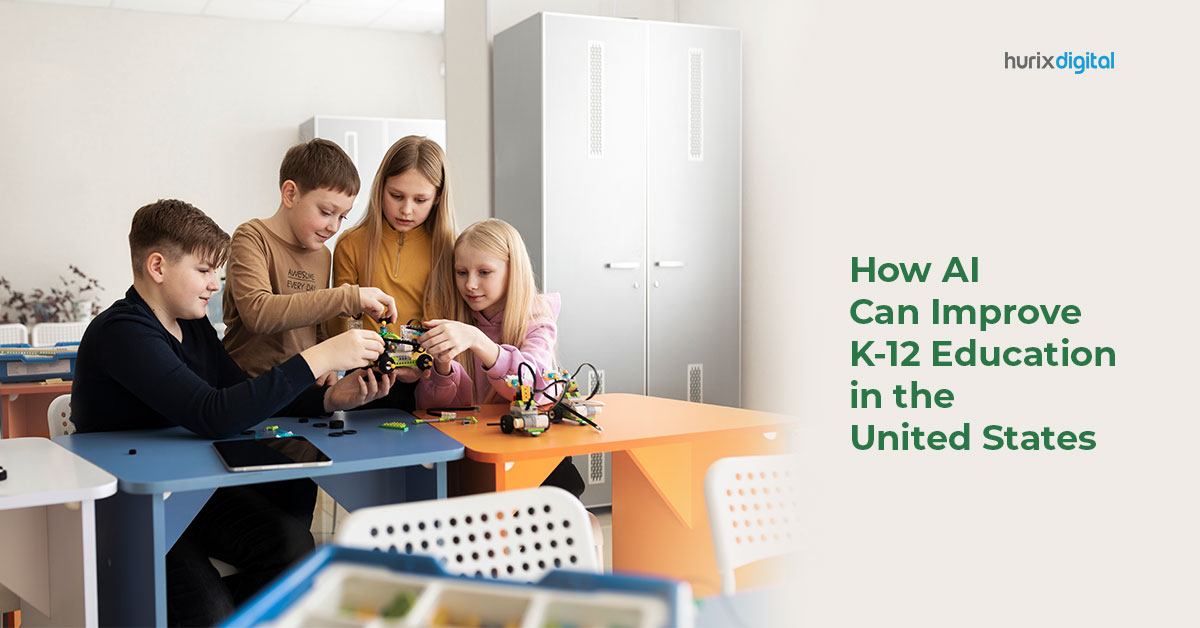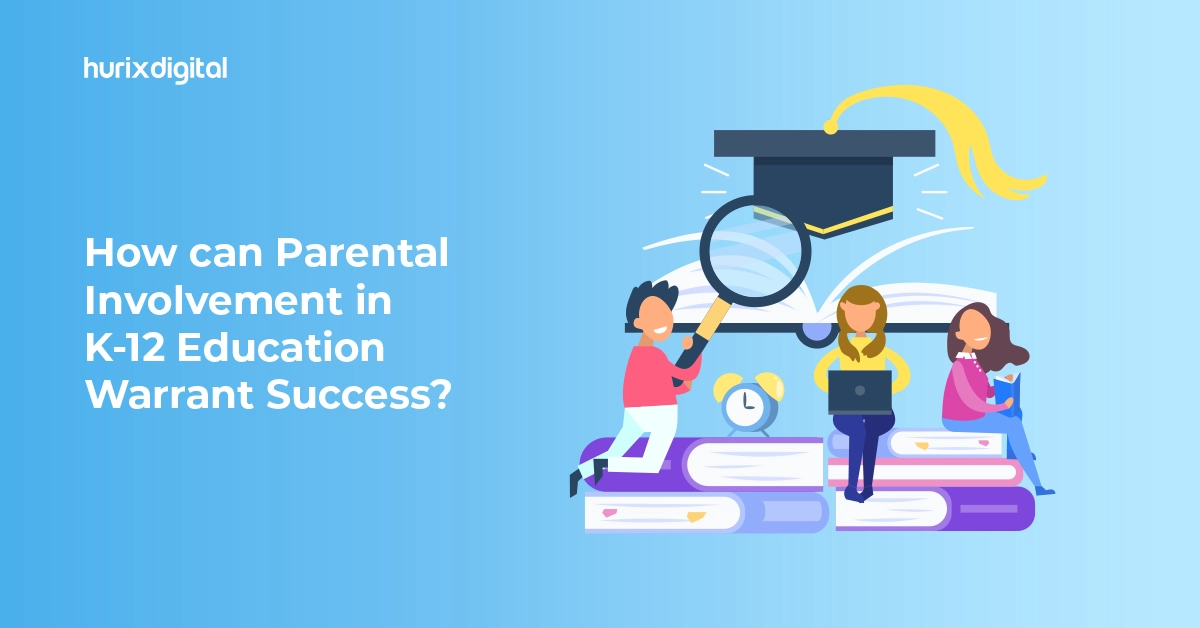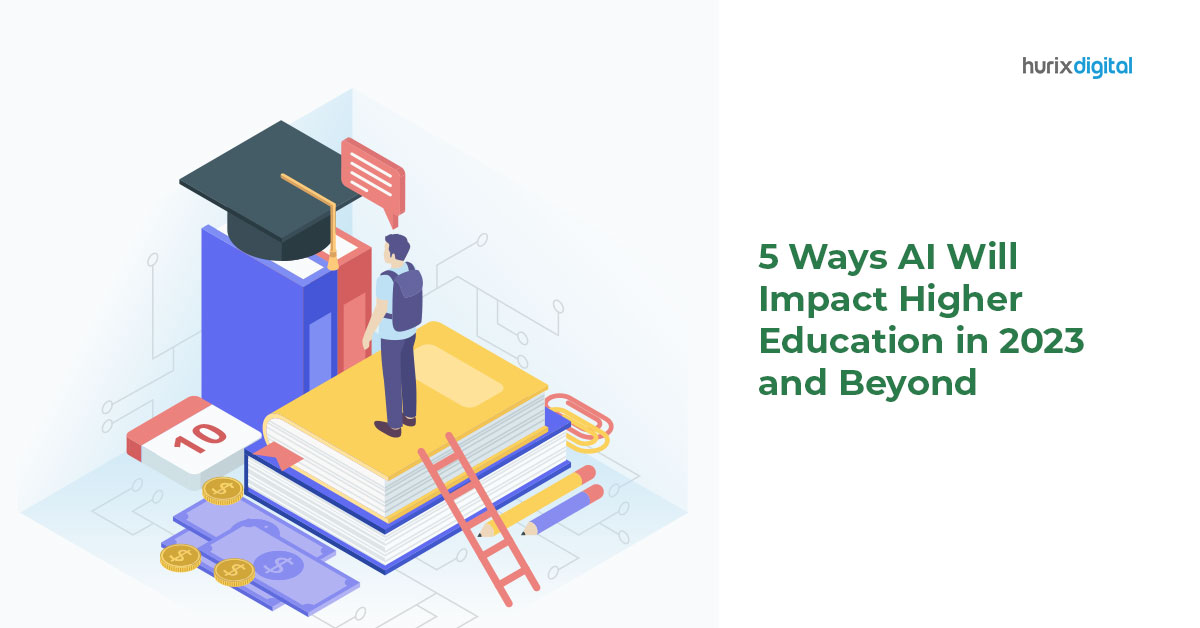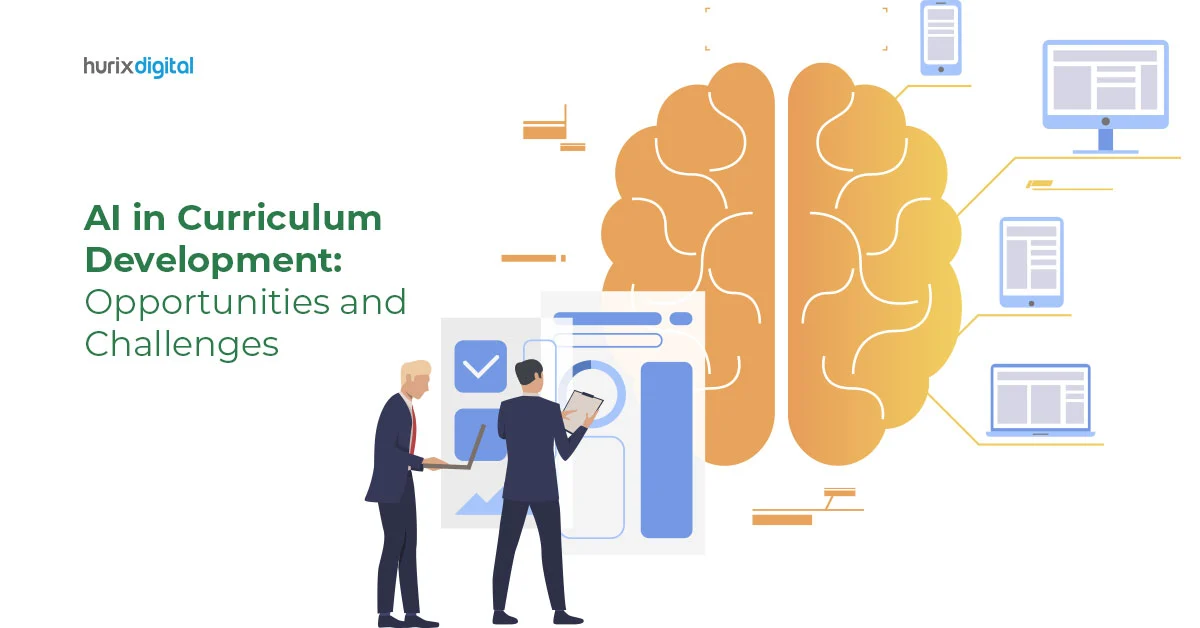
AI in Curriculum Development: Opportunities and Challenges
Summary
This article discusses the benefits and opportunities of using AI in curriculum development. It also discusses the challenges and opportunities that come with the use of AI in curriculum development.
AI is transforming education and learning and is being used in a variety of ways ranging from course and lesson planning to assessing and even tutoring. The global market value of AI in education is projected to increase by over 45% CAGR between 2022 and 2030.
One of the most significant uses of AI in education is in designing and developing a curriculum. AI in curriculum development allows for a completely new process of creating learning content and developing lesson programs.
With the rapid development of AI technology in learning and development, the future of instructional design is changing.
Table of Contents:
- What are the Benefits and Opportunities?
- Challenges for AI in Curriculum Development
- Summing Up
- Frequently Asked Questions (FAQs)
What are the Benefits and Opportunities?
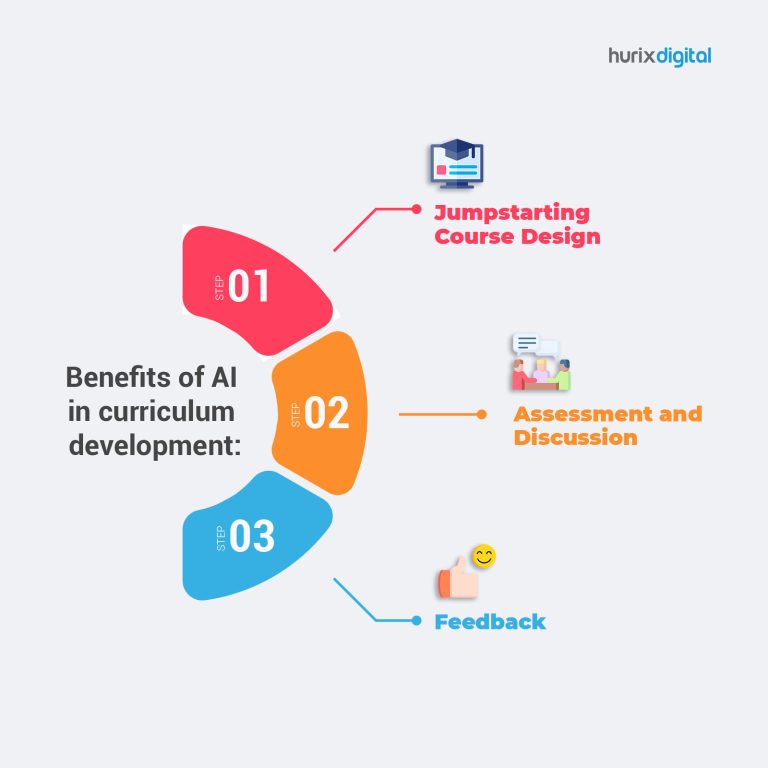
Benefits of AI in Curriculum Development
There are several benefits that AI can bring to the process of curriculum development. According to research, 20% to 40% of the current workload of teachers can be automated. AI offers several opportunities for educators, which are explained below.
-
Jumpstarting Course Design
AI can help jumpstart course design and get course designers through the most challenging part of course design: coming up with lesson plans. It can provide a great starting point and initiate ideas to get a course started. It can generate a course design based on the prompt you provide and come up with an outline for a lesson.
An AI curriculum for schools has several features and advantages. AI can generate question banks and lesson introductions, saving time spent on coming up with many questions for multiple assessments and time spent on developing diverse introductions for different lessons.
Further, AI can help you develop the course based on specific prompts. It can also summarise the content and identify issues in the way your content is aligned and organized.
AI can provide course objectives, ensure that there is a standard scope for each module, and maintain a sequence between different lessons or units. One of the major benefits of AI in curriculum development is that it allows you to create standardized and streamlined content that follows a continuous outline or pattern.
AI can also help educators come up with rubrics or improve their existing rubrics, objectives, and criteria for assessments and assignments. Using AI tools, you can come up with content that is targeted towards a specific audience. AI can provide topics for lessons and important subtopics to cover within those lessons. It can even provide assessments based on the lesson.
In these ways, AI can provide a great starting point from which you can continue designing lessons. Most importantly, it can jumpstart your thinking on particular topics and provide useful pointers for course content, based on which you can further elaborate the material.
Also Read: The Difference Between Course Design Vs Course Development
-
Assessment and Discussion
AI helps with curriculum development but also helps with implementing the curriculum and further stages of the teaching process, such as assessments and discussions.
Many students are reluctant to ask questions in a classroom. AI allows for functionalities like virtual instructors, which can clarify topics and answer questions. The advantage of such one-to-one sessions is that the students feel more comfortable in clarifying doubts, leading to a more thorough learning experience.
The AI instructor can pick up on the student’s specific style of learning as well as their current level of knowledge. This enables it to provide customized feedback based on the correct level of information.
An AI high school curriculum also allows for more complex forms of assessment. Instead of just multiple-choice questions, instructors can design more enhanced forms of assessment and feedback based on the individual learner’s knowledge level and learning style.
-
Feedback
An artificial intelligence curriculum can enable educators to design appropriate content based on the correct level of knowledge. It can also help them design the right kind of assessment based on feedback that it picks up from learners. With an online AI curriculum, curriculum designers can spend more time creating the instruction, assessment, and feedback.
AI in the school’s curriculum reduces the element of guessing that is involved in curriculum development since educators have a better sense of the requirements of their audience and can design material based on the correct audience.
Based on the AI feedback, instructional designers can apply the correct level of knowledge based on the learners and use the feedback to create further content. AI can also assist in identifying gaps in a curriculum based on the performance of students and the results of assessments.
It can help educators better understand the impact of their course on learners and adapt the course load accordingly. This helps mitigate or reduce any negative effects of cognitive load. In other words, it helps ensure there is no cognitive overload.
AI offers the ability to create more individualized learning experiences to suit different kinds of student requirements. It can help educators provide a more comprehensive explanation to enhance a student’s understanding. It can come up with suggestions for various assessments and help develop content for different levels of understanding.
It can suggest language accommodations and create materials for special needs students. It could also be used to develop alternative assignments and convert content into simpler content or language.
Also Read: Transforming Education with AI: Innovations in Curriculum Design
Challenges for AI in Curriculum Development
While AI offers several benefits and opportunities, it cannot replace an educator’s expertise on the subject matter. Knowledge and expertise in instructional design are still required to elaborate the content.
AI in curriculum development can lead to certain issues, such as teachers designing content using AI tools without keeping in mind how students may rely on AI tools to complete assignments.
Further, the teacher, curriculum designer, or educator would still have to add clarity in certain areas, create some in-class assignments, refine the final project rubric, and flesh out presentation and discussion elements. Teachers also bring a close understanding of individual students’ needs, which may be difficult for AI to gauge.
Summing Up
AI in curriculum development can provide a starting basis and framework for teachers to design lessons. It can also help students who need more explanation or a thorough understanding of a subject.
It can save instruction designers and educators time by helping them generate ideas, summaries, and course outlines. However, it comes with challenges, such as the possibility that students may also try to use AI tools to complete assignments.
Hurix offers e-learning solutions and educational content development programs in the higher education space. It designs learning experiences for educational institutions and helps them develop and deliver competency-based education. It also offers learning consulting to understand business requirements and recommend solutions.
Frequently Asked Questions (FAQs)
1. What are the benefits of using AI in curriculum development?
A. AI offers benefits like automating up to 40% of teachers’ workload, generating question banks, lesson introductions, maintaining standardized content & many more.
2. How does AI impact course design and development?
A. AI jumpstarts course design by providing initial ideas and outlines. It can generate lesson plans, identify content issues, ensure standardized scope & maintain lesson sequence.
3. How does AI assist in assessments and discussions within the curriculum?
A. AI facilitates virtual instructors for one-on-one sessions, offers customized feedback based on learning style and knowledge level, allows complex assessments, and enables tailored instruction and feedback.
4. How does AI provide feedback in curriculum development?
A. AI helps design appropriate content and assessments, reduces guessing by understanding the audience, identifies gaps in curriculum through student performance
5. What are the challenges associated with AI in curriculum development?
A. While AI offers benefits, it can’t replace educators’ expertise. Teachers must add clarity, create assignments, refine rubrics, and address individual student needs.

Senior Vice President
A Business Development professional with >20 years of experience with strong capability to sell new solutions and develop new markets from scratch. New Market Entry Specialist with experience working in the largest emerging markets. Exceptional experience in conceptualizing, ideating and selling new learning technologies like VR AR, etc. across multiple industry verticals.


